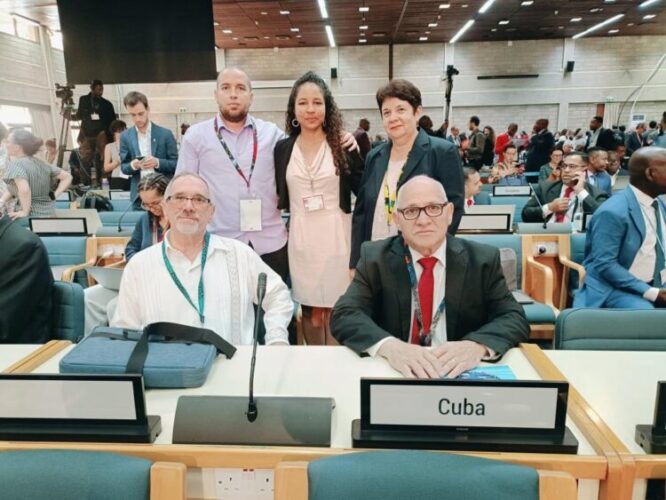A Cuban delegation takes part in the VI. United Nations Environment Assembly (UNEA-6), which began this Monday in Nairobi, Kenya, to analyze the triple planetary crisis: climate change, biodiversity loss and pollution.
 Photo: PL
Photo: PL
According to a statement from the Foreign Ministry of the largest Antilles, the island team will be led by the first vice minister of the Ministry of Science, Technology and Environment (CITMA), José Fidel Santana, and will develop an intensive program of work including meetings with environmental authorities of the Member States, the system of United Nations and other bodies.
Cuban representatives will actively participate in the consideration of draft resolutions and in high-level dialogues to defend the positions of developing countries, especially small island developing States, and to call for urgent measures to address the enormous challenges of the environmental impacts of climate change.
According to the organizers of the UNEA-6 event, which will take place until March 1, it marks the beginning of a new era of multilateralism, focusing on environmental issues with the same importance as other global issues such as peace, security and health.
After the years marked by the Covid-19 pandemic, the meeting also serves as a space for analyzes of socio-economic uncertainties and currently growing geopolitical tensions.
The development of the Fifth UN Environmental Assembly (UNEA-5) made history in 2022 when a resolution was passed to begin negotiating the first global treaty against plastic pollution.
The UN Environment Assembly recognizes the positive results of environmental cooperation over the last two years, including in particular the so-called High Seas Treaty for the Conservation of Marine Biodiversity in Areas Outside National Jurisdiction or the Loss and Damage Financing Agreement for Vulnerable Countries signed at COP28.
Nearly five thousand representatives from governments, civil society and the private sector are taking part in this global forum, which will consider around 20 resolutions that address challenges such as halting desertification, combating air pollution or limiting chemical pollution, according to the report UN Environment Program (UNEP). .
At a final plenary session, UNEA-6 was expected to adopt a ministerial declaration.

